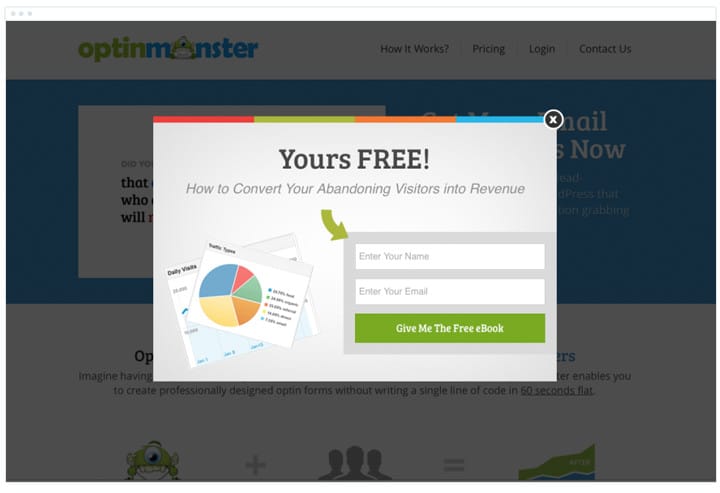20 Recommended Ways For Choosing Email List Sellers
20 Recommended Ways For Choosing Email List Sellers
Blog Article
What Do I Need To Consider When Buying A Pathologist Mailing List?
To ensure that you are receiving accurate information that is compliant with the law and is in line with your marketing goals It is important to take into consideration the following key elements. The following are the most crucial factors to consider: 1. Data Quality and Accuracy
Source of Data: Verify the source of the data. It could be professional directories like health databases or verified opt in contacts. The email addresses should be current and relevant.
Verification process: Check whether the list has recently been verified. Providers need to have a system in place for verifying email addresses and eliminating inactive or invalid addresses. A high-quality email list results in lower bounce rates and improved delivery capabilities.
Segmentation and Customization: Search for lists that allow you to categorize by area, subspecialty (e.g. forensic pathology or clinical pathology) and experience years, hospital affiliations, etc. The ability to customize your website allows you to connect with the right people more effectively.
2. Legal Regulations
Data Privacy Regulations: Ensure that the email list you use is in compliance with privacy laws pertaining to data such as the General Data Protection Regulation (GDPR) in Europe and the California Consumer Privacy Act (CCPA) in the U.S., and any other relevant laws. The pathologist data collected must be processed in a legally-sound manner that respects the privacy of individuals.
CANSPAM Act - If you are looking to target U.S. Pathologists or live in the U.S.A. Make sure that your email list is compliant with the CANSPAM Act. This law regulates commercial emails. A non-compliance could result in heavy penalties.
Consent to Opt-In: Ensure whether the emails on the list were gathered in accordance with the consent. This will ensure that pathologists have consented to receiving content from promotional sources. It will also reduce the chance of complaints regarding spam and maintain your company's good reputation.
3. Provider Reputation
Credibility of the service Select a trustworthy service that has provided accurate and compliant mailing lists. Check out reviews, ask for testimonials, and look up references from other healthcare marketing companies to determine the quality of the service.
Transparency. The company must be transparent in the manner they collect and update their data. Beware of companies that are ambiguous about the source of their lists of email addresses.
Customer Support - Search for companies that provide excellent customer service in the event of technical issues or when you require assistance with your list.
4. Cost and return on investment (ROI).
Pricing Model: Think about various pricing models, including pay-per-contact or a flat fee for the list, or subscription models. The cost should be compared with your marketing budget and the possibility of a return on investment (ROI).
Refund policy: Certain companies offer refunds or guarantee replacement if a significant number of emails are invalid or does not meet the requirements promised. Check to see if the service has a clearly-defined refund or exchange policy.
Value for money: Check prices against the high-quality of the list and the services they offer (e.g. campaigns management or CRM integration). The most affordable list might not be the most effective one if it has poor deliverability.
5. Data Ownership and Usage
Licensing Rights and Usage Rights - Make sure you know if the list can be used just once or you will own the list for ongoing campaigns. Certain providers offer licenses for single-use some others offer unlimited usage, which could be beneficial for longer-term outreach initiatives.
Exclusive vs. Shared lists: Determine whether you're the only buyer on the email list, or if it's shared with other buyers. Exclusive lists could result in a better response because the contacts won't receive a barrage of emails from various sources.
6. Data Format and Integration
Compatibility With CRM/Email Tools: Ensure that the email lists you have created are compatible with the CRM or email marketing tool that you currently use. Data should be available in a common format, such as CSV, Excel or other formats that can be easily imported.
Data Segmentation: Examine the ease of being able to sort and filter the data once it's integrated. Effective segmentation enables targeted email campaigns that have greater open and responses.
7. Ethical Aspects
Relevance of your message: Pathologists are highly-skilled professionals. Be sure that your product or service or message is appropriate to their requirements. If you send out information that is not relevant, it could damage the reputation of your brand or result in complaints of spam.
Avoiding Spam: Over-emailing or sending unwanted content can result in spam complaints. Use the list in a responsible manner to avoid damaging your reputation.
Conclusion
If you do it right, buying an email list of pathologists can be an effective marketing tool. Prioritize data compliance, the provider's credibility, and the quality of the data to increase the potential of your list. Ensure that the list is tailored to your particular requirements, and you always follow the privacy laws and ethical practices in marketing. By considering these factors, you can achieve an effective and efficient email campaign targeted at pathologists. Have a look at the expert pathologist email list for site tips.
What Do I Need To Think About When Purchasing An Oncologist Email List?
When purchasing an oncologist's mailing list, you should be aware of the factors that ensure the list will be quality, legal, and geared towards your specific marketing objectives. These are the most important considerations. Data Quality and Accuracy
Source of Data: Check that the data is coming from trustworthy and reliable sources, such as medical directories, professional associations or databases of healthcare. Avoid lists that are untrusted or from unidentified sources since they could contain outdated information.
Verification Process: List providers should establish a thorough procedure to ensure that the email addresses they provide are correct, authentic and current. The provider should regularly update and purge the list in order to remove any incorrect or duplicate contact.
Segmentation: A oncologist mailing list that is high-quality will allow segmentation. Being able to filter the list by subspecialties (e.g., pediatric oncology, surgical oncology, hematology-oncology), geographic location, years of experience, or institution allows for more targeted outreach, increasing the likelihood of engagement.
2. Legal Regulations
Data Privacy Regulations â Ensure that your email list is compliant with lawful privacy requirements for data, like the General Data Protection Regulations in Europe and the California Consumer Privacy Acts of the U.S. The email addresses must be collected and handled legally while respecting the privacy of data and consent.
CAN-SPAM Act Compliance: For U.S.-based campaigns, ensure that the list complies with the CAN-SPAM Act, which governs commercial email communications. Include an opt-out in your emails. Use precise subject lines. Do not mislead recipients. Infractions could result in fines or damage to your reputation.
Consent to Opt In: Check that all email addresses are obtained through consent. Oncologists have to consented in order to receive marketing materials. This is a way of ensuring that privacy laws are adhered to and reducing the chance of legal or spam-related issues.
3. Provider Reputation
Reputable List Provider: You should purchase your information from a list supplier with a solid reputation in the field. You can assess the reliability of a service by reviewing their past, testimonials, reviews as well as case studies. Established companies have a greater chance of being able to provide accurate and legally-compliant information.
Transparency: The service provider must be clear about where the data is sourced and when it is updated, and what verification techniques are used. Lack of transparency could be a warning sign and indicate poor data.
Customer Support: Opt for an organization that provides prompt customer support in case you need assistance with the list of requirements or are unsure about integration, segmentation, or compliance.
4. Cost and ROI
Understand the structure of pricing, for instance whether it is based upon the number of contact or whether it is a one-time charge or a subscription. Take into account how the pricing model is aligned with your budget for marketing and the expected return on investment.
Refund and Replacement Policy: An established service will offer a refund policy or a replacement policy for invalid emails or outdated email addresses. To protect your purchase, make sure you understand the conditions.
Do not just concentrate on price. While a list that is less expensive may appeal to you, if this results in low engagement or poor deliverability your campaign might fail. To ensure that your list is of high quality ensure that it has accurate and relevant data.
5. Data Usage and Ownership
It is important to know if the list is used only once, or whether you own it and can make use of it for as long as you want. If you're planning on running multiple campaigns, buying the list will give you more flexibility and longer-term value.
Exclusive vs. shared lists: Determine which list is intended for you or is shared with many buyers. Exclusive lists are more valuable since they reduce the amount of exhaustion in the audience, which can lead to more engagement.
6. Data Integration and Format
CRM compatibility: Make sure that your list can easily be imported into your Customer Relationship Management (CRM), or email marketing tools. The list must be delivered in a format that can be easily integrated that is compatible with CRM, such as CSV.
Easy segmentation: The CRM list should be easy to segment. By being able filter your list by factors like geographic area and specialization in oncology and oncology specialization, you can tailor your campaigns to better suit the audience.
7. Ethical Considerations
Relevance in messaging Oncologists are highly skilled professionals who have very demanding schedules. Your message must be relevant to the work they do or their interests. Examples include medical equipment, continuing educational opportunities, as well as pharmaceutical advances. Inadequate emails can damage your reputation and cause low engagement.
Avoid spam: Do not send out unsolicited email or large quantities of emails. This could lead to complaints about spam. Send out regularly to reach out to your audience, but without over-burdening them.
Conclusion
Prioritize accuracy of the data as well as the legal compliance and credibility of the company when purchasing an oncologist's email list. Make sure the segmented list is designed and validated to reach the right the right audience. In analyzing these aspects, it's possible to create a successful and dependable strategy for outreach that maximizes engagement, while delivering excellent results. Check out the pro oncologist email list for website guide.